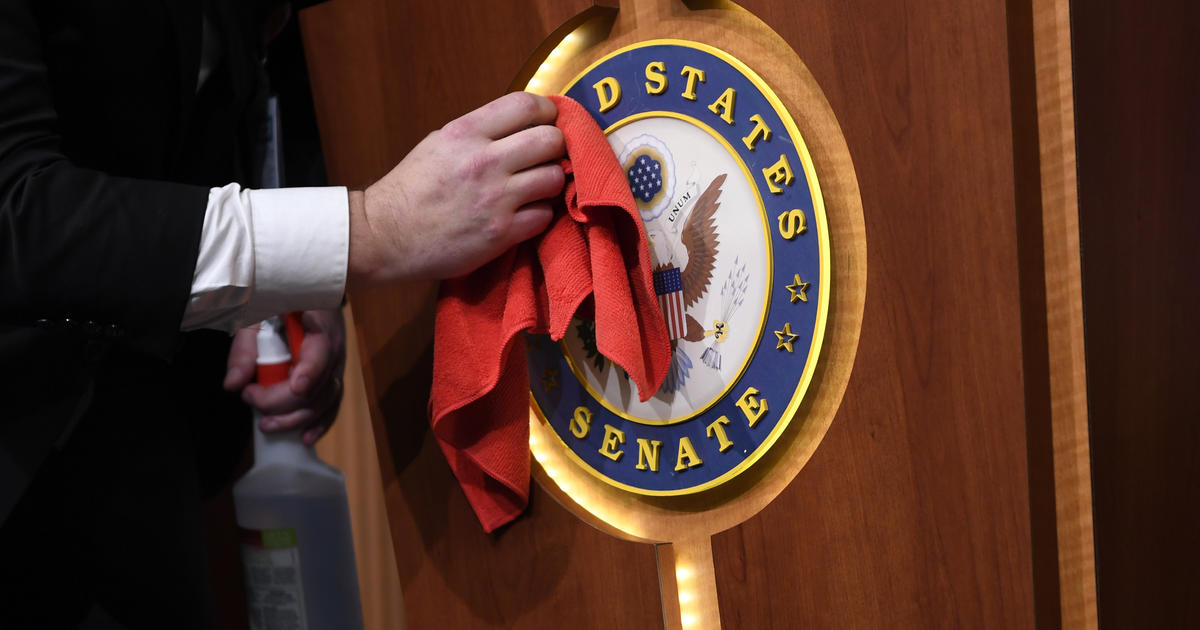Senate Democrats block $ 250 billion expansion of small business loan program
[ad_1]
Washington – On Thursday, the Senate did not approve legislation that would increase funding for the Paycheque Protection Program (PPP), which provides loans to small businesses to mitigate the economic fallout from Coronavirus pandemic. Republicans were hoping to approve an additional $ 250 billion for the program, which was established as part of the massive $ 2.2 trillion relief plan that President Trump signed last month.
Senate Majority Leader Mitch McConnell attempted to approve the measure by unanimous consent, which does not require the presence of a majority of senators, most of whom have returned home. He spoke Thursday morning to urge Democrats to support the measure.
“I’m talking about literally taking out the number ‘350’ and writing ‘600’ in its place,” McConnell said, referring to the $ 350 billion originally allocated to the fund. “Don’t block emergency aid that you don’t oppose just because you want something more.”
Senate Democrats immediately suspended McConnell’s request for unanimous consent, accusing Republicans of trying to push forward the expansion without negotiation and calling for more funding for hospitals and state and local governments.
“The majority leader knew full well that there was no deal and consensus,” Democratic Senator Chris Van Hollen of Maryland said. “It was actually designed to fail, designed as a political coup.”
McConnell opposed the Democratic proposal put forward by Van Hollen. The Democratic senator then opposed McConnell’s proposal. The Senate adjourned without approving any new funding for the PPP.
The Senate is formally scheduled to meet again on April 20, but another “pro forma” session could be called before that date to attempt to approve the additional funding.
In her weekly press conference, President Nancy Pelosi called McConnell’s proposal a “cut,” saying he rejected a “good faith offer” to negotiate with Democrats and determine the amount of funding needed where .
“Let’s see the data,” Pelosi said, referring to the companies most affected by the current economic situation. She called McConnell’s proposal a “basis for negotiation,” but said it would not have passed the House by unanimous consent.
Treasury Secretary Steven Mnuchin Tuesday request Congress approves additional funds for the loan program, which is designed to help small businesses keep their employees on the payroll and cover their bills during the pandemic. The Trump administration has said billions of dollars have already been spent, but many small businesses that have applied for the loans say they have not yet received funds.
Senatorial Minority Leader Chuck Schumer and Pelosi made other requests Wednesday for an interim legislative package in addition to the extension of the loan of 250 billion dollars.
Democratic leaders want $ 100 billion for hospitals and health systems to support rapid tests and personal protective equipment, $ 150 billion for state and local governments and a 15% increase in allocation maximum food stamps for families.
Of the $ 250 billion for small businesses, Democrats have called for $ 125 billion to go specifically to farmers, women, minority-owned businesses, families and veterans, and profit organizations. nonprofit, and want to improve the loan program to ensure that small businesses looking for loans are not turned down by banks. .
However, Mr. Trump has signaled that he will not support Democratic demands, and Senate Republicans appeared indifferent to the negotiation.
“We don’t have time for partisan games,” Mr. Trump said during the White House coronavirus task force briefing.
Meanwhile, the Federal Reserve announcement On Thursday, he would take further steps to provide up to $ 2.3 trillion in emergency loans to support the economy, including bolstering the PPP by providing liquidity to financial institutions providing loans to small businesses.
The economic fallout from the coronavirus pandemic has been devastating. Thursday, the Ministry of Labor announcement that 6.6 million people filed initial unemployment claims in the week ending April 4, the third week in a row of massive job losses.
Melissa Quinn contributed to this report.
[ad_2]



Comments are closed.